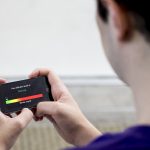Boston University looks for insights to Alzheimer’s from wearables
Boston University looks for insights to Alzheimer’s from wearables1

Boston University researchers have been working on creating wearable devices that that can detect signs of early dementia and Alzheimer’s. The goal of this three-year research project is to reveal minute physical changes that correspond with the slow mental decline associated with this illness. Right now, it is hard to detect early preclinical Alzheimer’s.
See Also: Can wearable technology help the elderly?
The incidence of this disease is steadily increasing as the population continues to age. It is estimated that as many as 5.4 million Americans might have Alzheimer’s. The risk of getting Alzheimer’s disease increases with age, although it is not considered to be a normal part of aging. If treatment is not found soon, it is expected that the national number of patients with this disease will almost triple by 2050.
Boston University researcher, Rhoda Au, has administered wearable digital devices to 2,200 elderly individuals, as a part of the study. During a three-year period, these devices will track patient’s balance, heart rate, sleep, cognitive function, and fall risk, along with other possible medical markers.
Currently, people who are at risk of developing Alzheimer’s are sent to a specialist. However, at that time, it is often too late to do anything to help the patient.
Plans for the future of wearables
“It’s really labor-intensive to bring people [into the lab],” said Au, speaking at the American Association for the Advancement of Science (AAAS) annual meeting in Boston.
Eventually, researchers plan to move past wearable technology to in-home devices such as Amazon Echo and Google Nest. This may give more insight as to what parts of a person’s life may cause dementia.
“I’m pretty sure that I have collected data that is not useful. But I am equally sure that I have collected data that is useful…it is very much about figuring it out as you go along,” Au said.
The post Boston University looks for insights to Alzheimer’s from wearables appeared first on ReadWrite.
(38)














